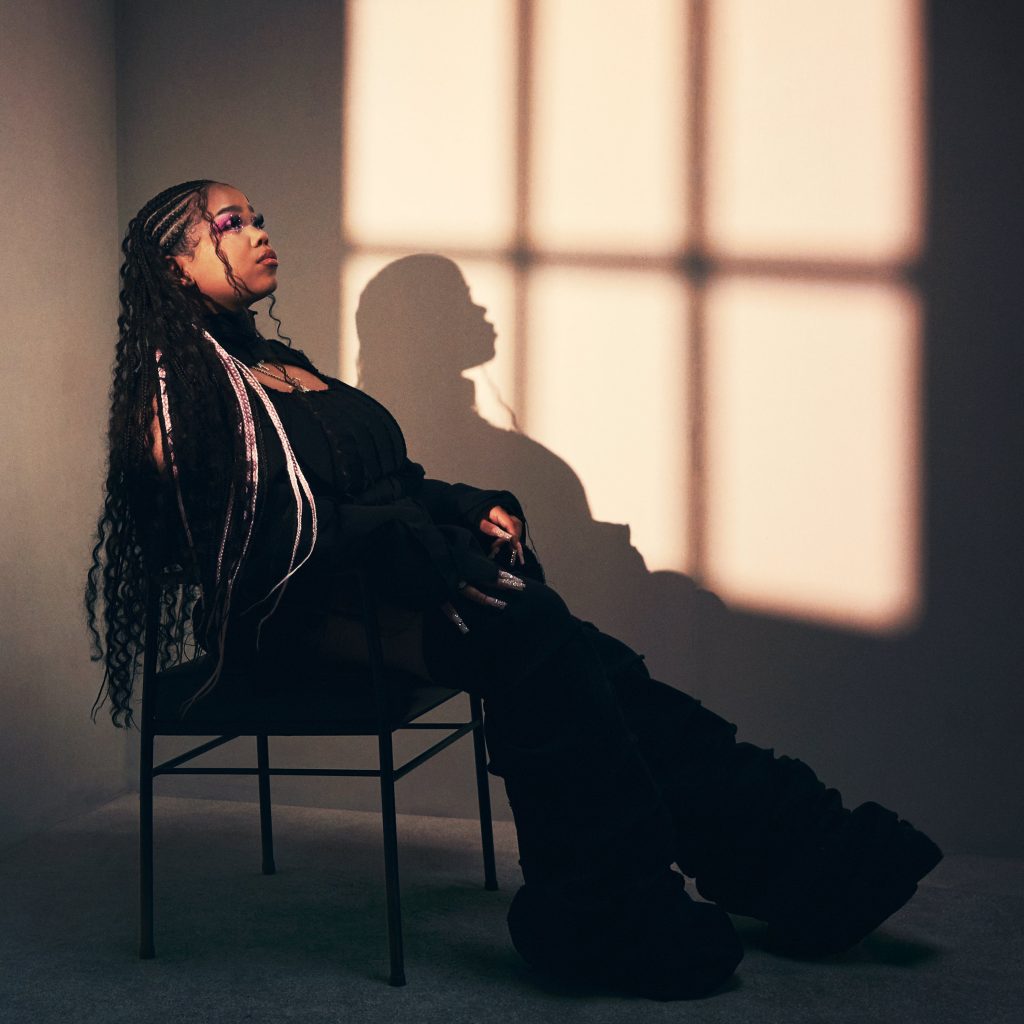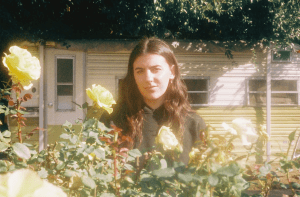German-born singer Zoe Wees has, at the age of 21, just released her debut album Therapy. Writing music is something Wees considers to be a form of therapy, hence the title of this beautifully haunting album. Prior to its release, Wees did a series of YouTube videos entitled ‘Therapy Sessions’, where she speaks about mental health and the importance of reaching out. For her, song-writing is how she dealt with personal struggles, such as her childhood battle with Benign Rolandic Epilepsy and growing up without a father figure, and the impact this has had on her own state of mind.

The album starts off with a series of songs previously released as singles. ‘Sorry for the Drama’ is a raw and emotional track on which Wees talks about her childhood and growing up less well-off than others. As a teen, she found herself always wanting more than she was able to have and not understanding why she could not have all these things. Her feelings of isolation and being ‘different’ than the other kids were worsened by growing up without a father in the picture, as is evident from the lyric “no daddy’s in the pictures”. All in all, the song is an apology towards her mother for how she acted when she was younger, having gained a better understanding of the world.
The song is followed by ‘Lightning’, which talks about using the things that do not kill you to make you stronger. Wees stated that it is about “pushing through all the doubt (…) from those (…) who try to knock you down” and using this as motivation to become even better. The track builds towards a powerful climax about three quarters into the song, with a softer outro. Next up is ‘Girls Like Us’, the last of the trio of singles, on which Wees speaks about the universal female experience of needing to adhere to standards set by the patriarchy and growing insecure because of this. Wees said that she found it hard to “grow up in a world that you feel doesn’t accept you”, but that she has since learned that it is more important to love yourself and find yourself beautiful rather than focus on what the outside world thinks of you. Accompanied by a catchy backing track, it makes for a truthful yet empowering song.
The fourth track, ‘Love Should Be Easy’, is one of several break-up songs on the album that Wees wrote about her ex-relationship. It is a dreamy yet painful track in which it seems that Wees is desperately trying to hold on to something that is no longer working. “So why do I keep holding on?” she sings, questioning, not sure why she stayed with someone who only let her down and no longer made her feel safe.
‘Control’ was Wees’ debut single, and to this day, still probably her most personal song, as it was written for one of her teachers who helped her out while she was dealing with epilepsy. Nowadays, Wees no longer suffers from this illness, but as she sings, “sometimes I still think it’s coming”. Her battle with sickness has left permanent scars on Wees’ mental well-being, and even though this has made her feel helpless and excluded from her peers, it has also made her stronger, a fighter. While ‘Control’ is Wees’ oldest song, it will forever remain one of her best, perfectly showcasing her ability to create a dark pop track that is authentic and powerful.
Next up is ‘Lifeline’, another piano ballad on which Wees sings about a person who she considers a lifeline. It is not clear who the song is about, but it is evident from the struggles Wees has been dealing with on this album so far, that it is of the utmost importance for her to have people in her life that she can reach out to.
The total opposite of ‘Lifeline’ can be found in ‘Daddy’s Eyes’, which was released prior to the album, and where Wees delves more into her non-existing relationship with her father. The man was never there for Wees and her mother, and so realizing when she met him once that his eyes look the same as hers was quite a painful experience. “I don’t wanna cry these tears with my Daddy’s Eyes” she sings, as she comes to the conclusion that she never needed him. It is a very powerful track on which Wees shows that she has grown into an independent young woman, far away from the teen who just wanted to have a dad in her life. This is evident as well on the song ‘21 Candles’, where Wees reminisces about all the birthdays she has spent without her father and being disappointed every time that he didn’t turn up. The song ends with a voice memo towards her father where she assumes that “he blocked her again”, but as she sings earlier on in the song, “I’m done wasting my breath” – while still angry and knowing that the rejection will forever hurt, she has started to heal.
In between these two tracks are the piano ballads ‘Hold Me’ and ‘Nothing’s Forever’. About ‘Hold Me’, Wees has said that she wrote the song in her hotel room right after playing a big show. She felt lonelier than ever before, which confused her because she has been working towards achieving her dream – as she sings “now I got it all, I should be grateful, but this shit is painful”. ‘Nothing’s Forever’ is another emotional break-up song, similar to ‘Love Should Be Easy’, where a desperate Wees sings about knowing that her ex-partner would leave and not being able to stop this from happening.
The break-up theme continues in ‘On My Own’, which seems to be about the aftermath of the break-up, having lost someone who meant the world to you and realizing you’re all on your own now. It is songs like this that show Wees’ urge to write sad songs with a happy and catchy beat. This same tendency can be found in ‘Broke’ – the piano notes are so lovely and dreamy, but the writing is so painful. Like in the earlier break-up songs, Wees is still hoping that the other person will just hold them and not let go.
‘That’s How It Goes’ is the only collaboration on the album with rapper 6LACK. It is very different from the other songs so far – it has more of a R&B sound rather than dark pop, and because of that it heavily stands out on this album. The duo sings – and raps – about a cruel world where you can only count on yourself.
It seems that the album goes in a more upbeat direction from here on out, because the next track ‘You Ain’t Really Good for Me’ is an extremely catchy song that could even be described as pop rock. Wees’ voice and confidence is what makes this track work so well. In an almost sarcastic way, Wees seems to sing about someone in the music industry wanting to control what she brings out – “You want some better lyrics, better songs, I better give you what you want” – while she knows that this person is just not good for her and her creativity. It is spectacular to hear how well Wees can do every genre and refreshing to hear more than piano ballads on this album.
Another genre can be found in the dance track ‘Don’t Give Up’, which has its message immediately clear from the title. No matter what happens, never give up. The chorus is catchy and makes you want to get up and dance and scream along with Wees. She is letting her listeners know that they will survive whatever the world throws at them – something she has firsthand experience with.
In between these catchy tracks, ‘Nothing But You’ can be found, a song in which Wees sings “if I didn’t have you I’d drown”. It’s another soothing piano ballad where Wees voices the relatable fear of losing the one person you cannot go without.
Another stand-out on the album is the single ‘Third Wheel’. Wees sings that she likes a person who is constantly focused on another girl. It is unlike any other song on the album, not only because of its themes, but also because of its upbeat poppy sound. The same goes for ‘Less of a Woman’, which is not only catchy, but also empowering. Wees has said about this song that she has grown to love herself and that nothing is more important than loving yourself just the way you are – and if someone does not like that, “they can just leave”. It forms a stark contrast with the rest of the album, including the final two songs.
‘Hold Me Like You Used To’ and ‘When It Hurts’ are the piano ballads that close this album off perfectly by going back to its roots. The former is a track about the death of a loved one. Wees dedicated this track to her great grandmother and has stated that she hoped it helps others who have lost a loved one as well. It is exactly this vulnerability that is Wees’ biggest strength. The same goes for the last song, ‘When It Hurts’, where Wees sings “we’ve been through the best and the worst” – a sentence that not only captures the relationship with the person she wrote the song about but also perfectly resonates with the journey made on this album.
All in all, Therapy is an album that can be described as a rollercoaster of emotions, not only in the abundance of soothing piano ballads, but also in the catchier pop and rock tracks. The fact that Wees has managed to release such a powerful album at this young of an age is only promising for the rest of her career.
Written by: Mandy Huibregtsen
Edited by: Nèri Cliteur



